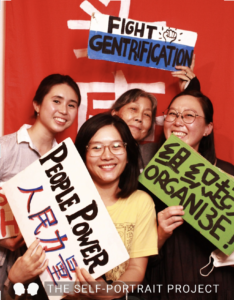We mourn the deaths of George Floyd, Breonna Taylor, Tony McDade and so many others lost to police violence. We condemn their murderers, and we stand with their families and loved ones in their grief, anger, and mourning. We also stand with those taking to the streets to express their outrage and to call for the defunding of the police — in Minnesota, across the country, and here in New York City. We condemn the violence and brutality police are using against our people fighting for a more just city and country.
Locally, we uplift the work of Communities United for Police Reform (CPR) and the many families of victims of the NYPD who are organizing to bring an end to police brutality. We join CPR in calling for NYPD Budget Justice for a disinvestment in the police and a bold, transformative investment in our communities. To repeal 50a and stop police from hiding their abuse. And to pass the Safer New York Act, a package of bills in the New York State Legislature that would help increase police transparency and help increase accountability to New Yorkers’ most common encounters with police. We also support Black, working-class organizing groups in New York City, like Equality 4 Flatbush, BYP 100, and the Audre Lorde Project, which have fought against police brutality and racial violence of many kinds long before this moment, and will continue to do so. We are also grateful to have allies like the Justice Committee, a grassroots organization in NYC, which challenges police brutality and systemic racism, and continues to build the power of low-income people of color.
The murder of George Floyd by Derek Chauvin and the Minneapolis Police Department is yet another example of the anti-Black racism, police brutality and racial violence that our society is built upon. But as COVID-19 so brutally shows us, racial violence is not limited to murders like these. American capitalism was built through slavery and indigenous genocide, and therefore racial violence is ingrained in America’s economic order:
– The disproportionate COVID-19 death rate in Black, Latinx and South Asian communities is racial violence.
– The austerity policies that have destroyed NYCHA are racial violence.
– The $6 billion spent funding the NYPD is racial violence.
– The systematic deregulation of rent-stabilized housing is racial violence.
– The discrimination, harassment and physical violence directed at Asian Americans due to COVID-19 is racial violence.
– The complete inadequacy of language access in our government and bureaucratic institutions is racial violence.
– The refusal to cancel rent, and to enact tenant protections and a complete eviction moratorium in New York is racial violence.
Anti-Black racism and violence are at the foundations of American capitalism, and therefore at the foundations of the racial violence and class oppression which our Asian immigrant communities face here. While President Trump points the finger at China, and Asians get blamed for the devastation of COVID-19 in the U.S., those who set the foundations for this economic crisis get let off the hook: President Trump, Governor Cuomo and Mayor De Blasio. They have moved austerity policies on healthcare, education and housing, all while funding the NYPD at $6 billion a year.
As we fight for bold demands, like cancelling rent, to transform our economic system, our government is fighting just as hard to keep the current racial and economic order. As Communities United for Police Reform wrote in an April 30 letter to Mayor De Blasio and Speaker Johnson, “Overinvestment in policing and underinvestment in public health, housing, and community needs help explain why our city has been so devastated by COVID-19, especially amongst elders and in Black, Latinx and other communities of color.” Militarized police are aggressively confronting protestors both to enforce anti-Black racism, and to enforce the status quo at a time when our economic system is revealing its deepest cracks.
We will never win the transformative demands we need – like rent cancellation and full funding for NYCHA – so long as $6 billion goes to the NYPD every year. In order to achieve justice, we must fight together against anti-Black racism and racial violence. This will not be easy. Anti-Black racism is deeply internalized in many Asian communities. These wounds run deep and often are most challenging in the places we live side-by-side as neighbors — like in the places CAAAV organizes, the Queensbridge Houses and Chinatown / Lower East Side.
Several years ago, CAAAV stood with the family of Akai Gurley in demanding justice for his murder by Chinese-American NYPD Office Peter Liang. This decision proved controversial within our working-class, Asian immigrant membership, and it made our organization the target of aggressive harassment and threats from right-wing Chinese-American forces. But most importantly, we were met with tremendous challenges because of the extent to which working-class Chinese immigrants in our community and our membership base sympathized with Liang and felt the NYPD was making him a “scapegoat” because of his racial background. Racial violence has created deep and complex wounds in every corner of the Asian immigrant community.
These wounds are challenging, and while they must be honored, we cannot allow them to prevent us from standing in solidarity. We must call upon one another to stand with the Black community, in opposition to police brutality and all forms of anti-Black racism. We must uplift and protect AAPI organizations and leaders who move forward into these roles now, like Freedom Inc and Man Forward.
Ultimately, we know racial violence is much more than individual incidents or tensions. It is the product of an economic order that values the white and wealthy and embroils us in a racist and violent logic. Working-class Asian and Black communities have many of the same enemies. As neighbors, we must work past our tensions, build a politics of grounded solidarity and create something better together for all of us.
In Solidarity,
CAAAV Organizing Asian Communities

